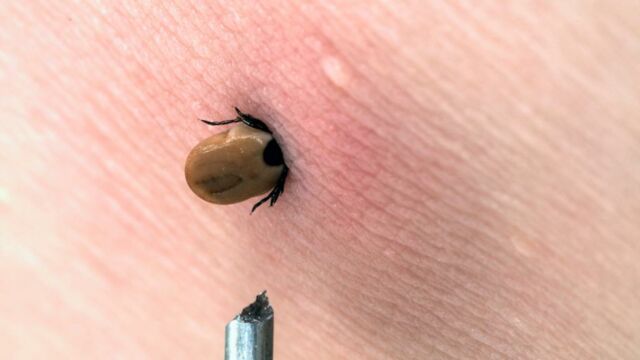If you like to go for walks in the great outdoors, you should be vigilant: in the forest, many hungry critters lurk in wait for you, but also small crawling bugs such as ticks.
Discover our latest podcast
The problem is that these little animals can transmit diseases. Here's how to recognise a tick bite and what to do if you get caught.
Recognising a tick bite
A tick bite actually looks more like a sting. The easiest way to recognise it is when the tick is still sitting on and in your skin, and happily sucking blood. If the tick has already fallen off, it becomes more difficult, as a simple tick bite cannot be identified by certain symptoms.
Normally, tick bites do not cause pain or itching. However, you can get a good itch going in the case of an infection with a pathogen that can be transmitted by dirty ticks.
Ticks can transmit diseases
If the tick bite itches, it could be that you have contracted Lyme disease, a bacterial infection (the best known is probably Lyme borreliosis). If this is the case, the skin around the site of the bite will be red—this is called wandering redness.
It can take a few days or even weeks for the redness to appear. If you also get a fever, this could be another sign of Lyme disease.
However, there is another infectious disease that can be transmitted by animals and that is also accompanied by fever: Tick-borne encephalitis (TBE).
This is an inflammation of the brain. People who fall ill with TBE often experience fatigue or headaches, and in severe cases, paralysis. Unlike Lyme disease, however, there is no itching at the site of the bite.

Tick bite: How to act correctly
It is best to discover the tick bite as soon as possible. A tick can be removed relatively easily after about 2 hours. First anaesthetise the area and then slowly pull the tick out with a pair of tick forceps.
Do not turn the tweezers or forceps. If the head remains stuck, you should not tamper with the tick yourself, but immediately consult a doctor so that the tick can be completely removed. The mouthparts can still infect you, even if the body is gone. Similarly, be careful not to squeeze too hard, lest you squash the bug and cause it regurgitate into your bloodstream.
Despite the danger of ticks, have fun hiking and roaming around in the forest. And always remember: ticks are not always carriers of diseases and a tick bite is not always bad—so don't panic too fast, and follow our advice.















